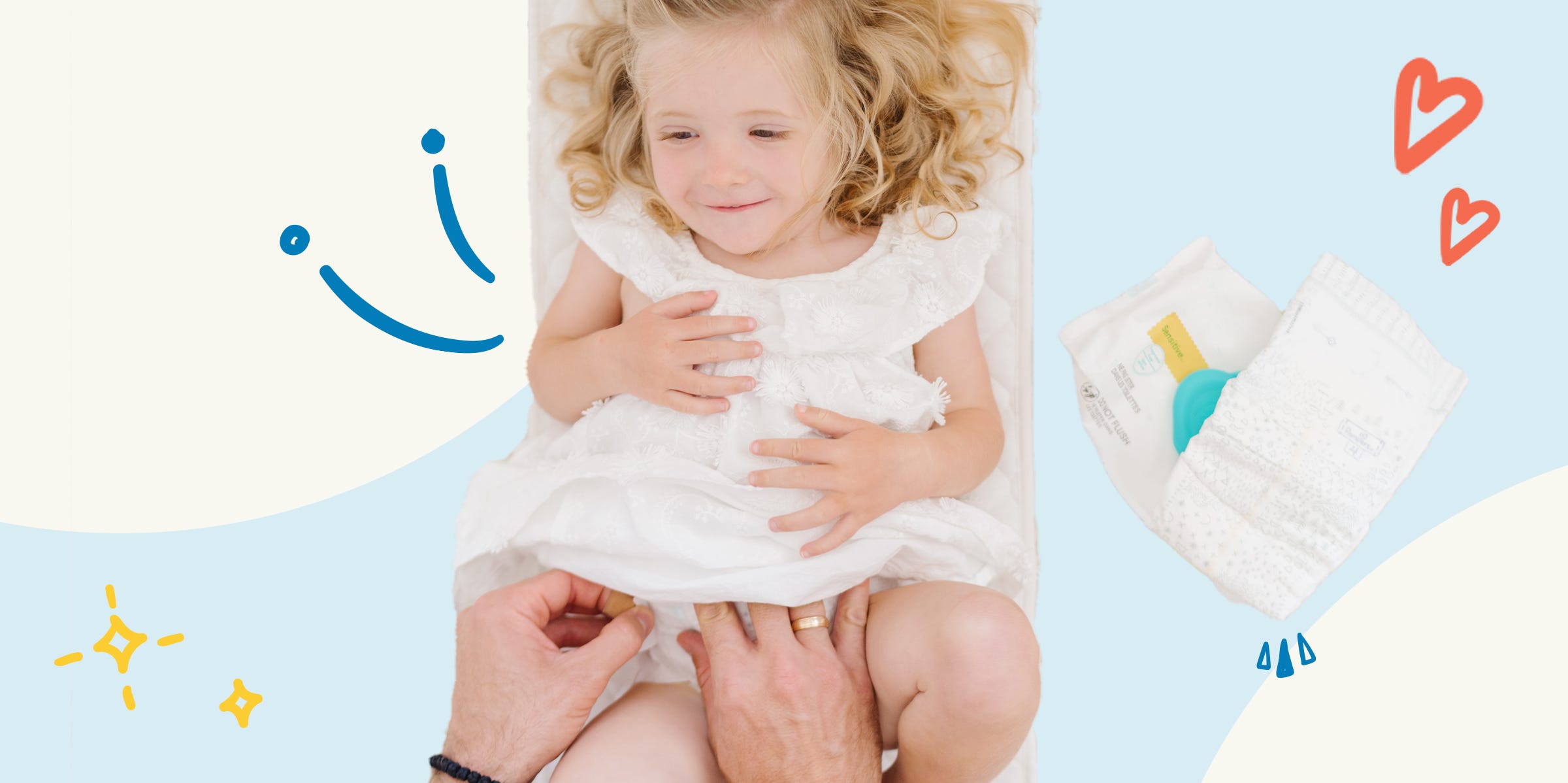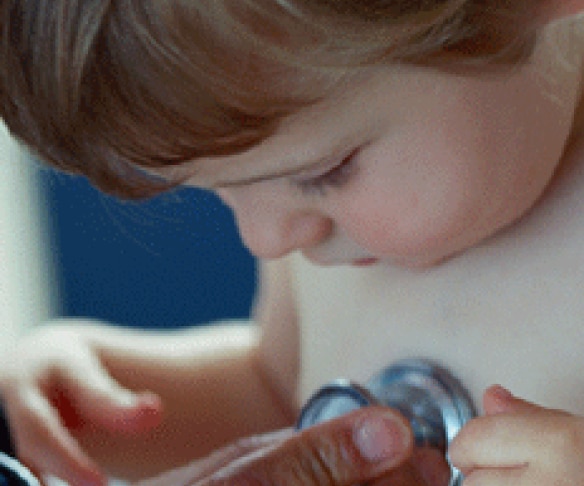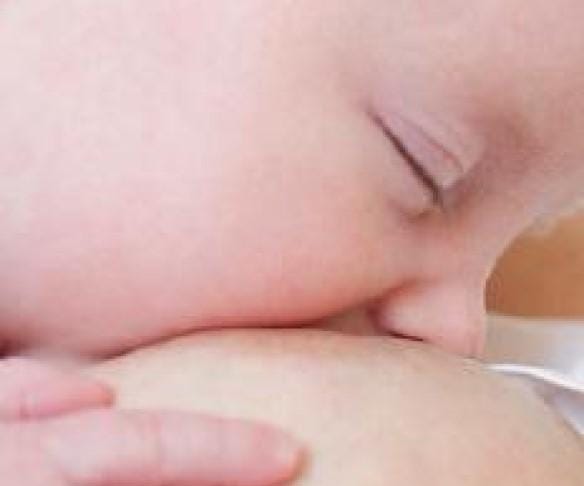Why Your Little One Has Diarrhea (And What to Look Out For)
Even minor ailments can feel scary and overwhelming when it's your little one, and diarrhea is no exception. Is it illness? Something they ate? Can a baby who doesn’t eat solids even have diarrhea? (Yes.)
Don’t panic: there are a few common causes of diarrhea in babies, and most don’t indicate serious issues. Here, we’ll tackle the very gross but necessary topic of why your baby is having tummy troubles (and what warning signs to watch for).
Consider Diet When Diagnosing
Diarrhea is defined as loose and watery stools. However, that’s a very subjective definition—what does diarrhea look like in babies who haven’t started solids? What should it look like for babies and toddlers who have?


For babies who haven’t started solids: As any parent can tell you, baby poop is famously variable and, especially before solids are added, can be quite loose and even runny, especially among breast-fed babies. That sounds a lot like … diarrhea. Keep an eye out for change: if your baby’s stools seem runnier than usual for them, and/or their bowel movements are happening more quickly, that’s probably diarrhea.
For those eating solids: stools will be markedly watery or runny. Defecation may be more frequent (and among those who are potty trained, more urgent!) “Accidents” are common among recently potty-trained children with diarrhea.
What is “toddler’s diarrhea”?: This phrase usually refers to a not-uncommon situation in which otherwise-healthy toddlers (experiencing appropriate growth and weight gain) develop chronic diarrhea, often defined as having 5-10 large, loose stools per day, often lasting for weeks and then followed by normal bowel movements. This is usually due to diet (too much fruit juice is a common culprit) or just a bowel that is still developing. Consult your doctor for any bowel issues that don’t clear up after a day or so!
OK, It’s Diarrhea—What’s Causing It?
There are a few typical causes to check for among young children. If you have an exclusively breastfed baby, diarrhea is relatively rare but can be caused by changes in the nursing parent’s diet or medications. For babies and toddlers who are receiving some or exclusively formula or solid food, typical reasons include:
- Changes in your little one’s diet: Big changes can be caused by events like switching formula brands, introducing solids (added fiber can upset sensitive young tummies), introducing new foods, or changes in circumstance (such as traveling or religious observation).
- A new medication: Taken either long- or short-term, some medications, even those sold over the counter, can cause digestive issues.
- Bacterial or viral infection: This could be anything from a common stomach bug to giardiasis (a common parasite caused by fecal contamination).
- A food allergy or intolerance: There is a difference between these two! An intolerance is difficulty digesting a substance, IE., lactose intolerance, and while it can cause bathroom issues and other discomforts, it’s not life threatening. An allergy involves the immune system and can trigger life-threatening responses. Common allergens among children include cow’s milk, peanuts and eggs.


When to Get Help ASAP
Although common, diarrhea can still be a serious issue, so don’t hesitate to talk to a medical professional. And be sure to seek immediate medical attention if your child’s diarrhea doesn’t clear up within a day or two, if it’s accompanied by fever, or if there is dark blood in your child’s stool. The other major concern to look out for is dehydration, which can come on quickly. Signs of dehydration include:
- Crying without tears
- Dry mouth
- No wet diapers for three or more hours for babies and no wet diapers or urination for eight hours for toddlers
- Listlessness
- Sunken eyes, cheeks, and in babies, a sunken soft spot on top of skull
- Deep, rapid breathing
If you suspect any of the above, call your child’s doctor.
For most kids, diarrhea is a common, if unpleasant, rite of passage and will pass on its own in one to two days. If you can keep your baby hydrated and symptoms don’t persist, this messy situation will soon be in your rearview mirror. On to the next bodily function crisis!
Sources:
https://www.healthline.com/health/baby/baby-diarrhea
https://www.hopkinsmedicine.org/health/conditions-and-diseases/diarrhea-in-children
https://www.mayoclinic.org/diseases-conditions/food-allergy/expert-answers/food-allergy/faq-20058538
https://www.mayoclinic.org/diseases-conditions/dehydration/symptoms-causes/syc-20354086
https://www.hopkinsmedicine.org/health/conditions-and-diseases/diarrhea-in-children





